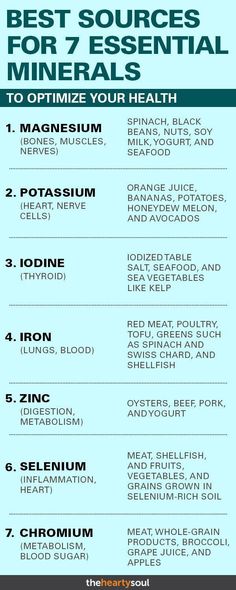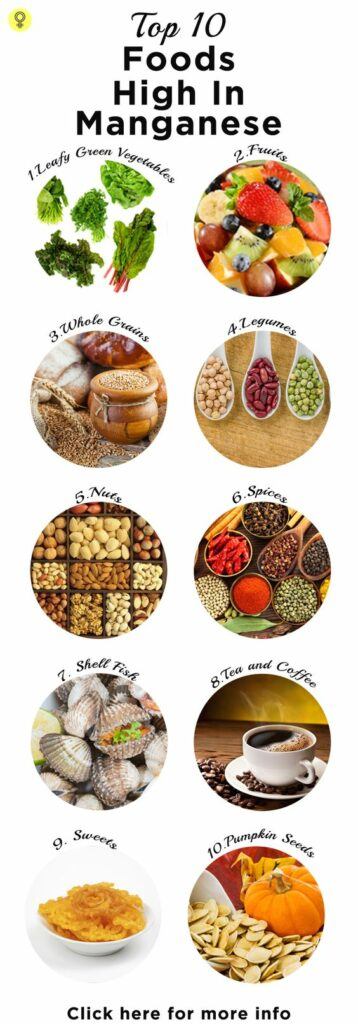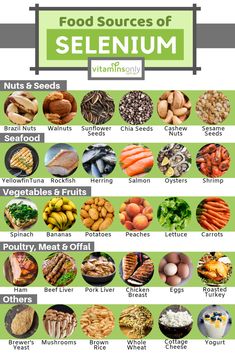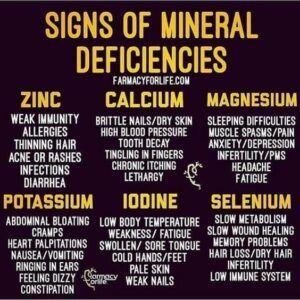What do you think of when you hear the words: precious minerals? Gold? Silver? Platinum? While it is true, those are precious minerals in terms of monetary value, but there is another set of precious minerals: minerals that are precious to our bodies. This article elaborates on minerals and the body and their importance.
What are minerals
We’ve all heard the phase vitamins and minerals. But I bet you hear the word vitamins more often than minerals. However, minerals are just as important to the body as vitamins.
Minerals are elements found in the earth and in foods that our bodies need to develop and function normally. The ones crucial for health involve calcium, magnesium, phosphorus, potassium, chloride, sodium, iron, zinc, fluoride, iodine, chromium, copper, molybdenum, manganese, and selenium.
Health Benefits of minerals
As with vitamins, minerals help the body grow, develop, and maintain a healthy state. The body uses minerals to carry out many diverse tasks from building strong bones to transmitting nerve impulses. Some are even used to make hormones or sustain a normal heartbeat. They are essential for optimal health.
Minerals and their functions
Minerals are broken into two categories:
Macrominerals: (AKA Essential minerals) the body requires a large amount to reap the benefits
Trace Minerals: only a small quantity will make a big difference in health.
Let’s take a look at some minerals.
Calcium (macromineral)
- Benefits: We have more calcium in our bodies than any other mineral. Although 99 percent of calcium is stored in the bones and teeth, the remaining one percent still plays a vast role by helping blood vessels move blood throughout the body and by helping muscles expand and contract.
- Recommended Daily Value (RDV): Because of the function it plays in helping develop strong bones, growing children and teenagers may require more calcium than the average young adult. National Institutes of Health recommends an intake of 1,300 mg/day for children ages of 9-18, as well as for pregnant or breastfeeding women. Adults 19-50 should have an intake of 1,000 mg/day, as well as men 51-70. It is recommended for women over 51 and men over 71 have an intake of 1,200 mg/day.
- Sources: Calcium fortified foods such as milk, cheese and yogurt, are great sources of calcium. Green, leafy vegetables and fish with soft bones, such as sardines and salmon, can also provide an individual with the calcium the body needs.
- Supplement Options: If an individual doesn’t consume optimal levels of calcium in their diet, supplements may be able to help.

Magnesium (macromineral)
- Benefits:
Magnesium is the fourth (4th) most abundant mineral in the body and helps blood sugar levels and blood pressure, regulate muscle and nerve function, . - Recommended Daily Value (RDV): The daily recommended value for magnesium is 400 mg/day for males 19- 30 years of age and 420 mg/day for males over the age of 30. For females 19- 30 years of age, 310 mg/day is recommended, while 320 mg/day is preferred for females over the age of 30.
- Sources:
Adding legumes, nuts, seeds and whole grains to the diet is a great way to increase magnesium levels. Green, leafy vegetables, for example spinach and kale, also provide good levels of magnesium. - Supplement Options: If you don’t consume optimal levels of magnesium in your diet, supplements may be able to help.
Potassium (macromineral)
- Benefits: A lot of the benefits potassium offers boil down to the building and break-down process in the body. Potassium is necessary for not only building muscle and proteins, but in breaking down and using the carbohydrates an individual consumes.
- Recommended Daily Value (RDV): It’s recommended that those ages 14 and above consume 3,500 mg of potassium/day.
- Sources: Individuals who are selective eaters will be pleased to know that achieving their daily dose of potassium-rich foods is rather easy. This is because most food items contain potassium. All meat foods as well as fish products, like cod and salmon, are packed with potassium. For the individual that is a vegetarian, vegetables, including broccoli and sweet potatoes, citrus fruits and dairy, such as milk and yogurt, are additionally great choices.
- Supplement Options: If you don’t consume optimal levels of potassium in your diet, SUPPLEMENTS may be able to help.
This takes care of the macrominerals. Next we have the trace minerals.
Zinc (trace mineral)
- Benefits: describing the benefit of zinc is pretty easy─we need it to stay healthy. Zinc assists the immune system to fight off invading bacteria and viruses. Zinc is also essential during pregnancy and early childhood years, as it helps the body to grow and develop.
- Recommended Daily Value (RDV): The daily recommended value for zinc is 15 mg.
- Sources: oysters are a potent source, as a 3 ounce serving contains 74 mg of zinc. A similar serving of beef or crab contains 5-7 mg while chicken breast has 0.9 mg.
- Supplement Options: individuals with gastrointestinal and other illnesses, such as diabetes, vegetarians and heavy drinkers are all subject to zinc deficiency. If one doesn’t consume optimal levels of potassium in their diet, supplements may be able to help.

Manganese
Our bodies require manganese to build connective tissues and bones. Manganese also supports the formation of sex hormones, the management of blood sugar and the assimilation of calcium. The proper breakdown of dietary fats and carbohydrates also necessitates adequate quantities of manganese. Females should consume 1.8 milligrams per day and males need 2.3 milligrams.
Copper
The Institute of Medicine establishes the suggested intake of copper at 900 micrograms per day for adults. The body uses copper to construct enzymes required to initiate the production of energy and produce the crucial neurotransmitters epinephrine, norepinephrine, histamine, serotonin and dopamine.
Flouride
Although the body does not require fluoride to promote growth or sustain life, it carries out an important role in preventing tooth decay. To keep the teeth healthy, females require 3 milligrams per day, while males should intake 4 milligrams per day.
Molybdenum
Molybdenum, a little known mineral found in legumes and grains, is vital for the formation of enzymes that support chemical reactions in the body. The Institute of Medicine recommends adults intake 45 micrograms per day.
Iodine
The thyroid, is a butterfly-shaped gland in the neck, which contains the only cells in the body that absorb iodine. The thyroid uses iodine to produce two thyroid hormones — triiodothyronine, referred to as T3, and thyroxine, called T4. Thyroid hormones regulate the functions of every cell. Although crucial, the body needs only 150 micrograms of iodine a day.
Chromium
The amount of chromium the body requires depends upon age and gender. Adult men ages 19 to 50 need 35 micrograms, while those in excess of the age of 50 need 30 micrograms per day. Females need slightly less — 25 micrograms for those age 19 to 50, and 20 micrograms over the age of 50. Chromium enhances the action of insulin, a hormone formed by the pancreas that manages the processing of carbohydrates, fats and protein.
Selenium
Selenium mixes with proteins in the body to form selenoproteins that act as antioxidants, compounds that protect cells from damage caused by negatively charged particles. Adults should intake 55 micrograms of selenium daily.
How to get minerals
The body doesn’t manufacture essential minerals. They are obtained from our diet. The minerals originally come from rocks, soil, and water, and they are absorbed as the plants grow or by animals as the animals eat the plants.
However, fresh foods aren’t our only source of dietary minerals. Some processed provisions, like breakfast cereal, may be outfitted with minerals. Also, any drugstore as well as online websites, one can find endless options for mineral supplements in the form of pills, powders, and chewables. The online source I use is The Vitamin Shoppe.
Of course, fresh food is the best option!
It is important to note that some minerals are harder to acquire in the required amounts.
Some examples are:
Calcium – This deficiency is more frequent in older adults, especially in females and with people who eat few dairy products. A lack of calcium in the body increases the risk for brittle bones and fractures.
Iron – Females lose a lot of iron when they pass menstrual blood, and their bodies can turn out to be lacking in iron. Another cause of iron deficiency is not as well-known. Overweight individuals, especially premenopausal females, have a high risk for iron insufficiency, in part because severe weight is linked with low-level inflammation, which reduces iron absorption and use by the body. Low iron levels can lead to iron-deficiency anemia. In this condition, there are not enough red blood cells, and the red blood cells are too small. That makes it difficult for the blood to carry oxygen to organs.
Magnesium – Drugs, such as diuretics to treat high blood pressure, cause an individual to expel magnesium in the urine. And magnesium also is commonly lacking in people with diseases that cause diarrhea. For more information on magnesium see the article HOW IMPORTANT IS MAGNESIUM.
Potassium – According to the Department of Agriculture, older adults take in only about half to three-quarters of the potassium that is required. A low-potassium, high-sodium diet is thought to contribute to high blood pressure.
THE BOTTOM LINE: Making sure you’re eating mineral-rich foods, drinking plenty of water, exercising daily and getting enough sleep are all things you can do to live a healthier lifestyle.
Please feel free to leave any question, comment or concern below.
Good Health!!
Thank you so much for giving us such a wonderful article. Your article is really informative and I gained a lot of knowledge by reading your article which is very helpful to me .I am very aware of my interests and I think mineral foods are very important to my body .Minerals help the body to grow, develop and maintain healthy conditions .The body uses minerals to perform a variety of functions ranging from strong bone formation to nerve tendency infections .Mineral foods are essential for optimal health .Adding horns, nuts, seeds and whole grains to the diet is a great way to increase magnesium levels.In addition, I have learned about your source and benefits of national food through your articles, and for that you must be thankful.
I will definitely get your article out to my friends and they will be greatly benefited and they will certainly share with you new experiences by following the tips you give.Can I share your article on my social media?
Yes those minerals are vital to our health and we can get them naturally from our foods and supplementation if necessary. Yes please share with your social media. We all need to take care of our bodies. Thanks!
Minerals are integral for the body health and getting them in adequate form will do the body a lot of good. Thanks so much for sharing this post out here. Personally, I like how you have simplified this post and it is really worth the time to read. Thank you so much. I will dedicate more time to reading and taking care of my body. Thanks
Hi Rodarrick – Yes minerals are important. Isn’t it interesting that the same minerals found in the earth are found and needed in our bodies? It just shows our origin of our creation. It’s good that your are going to take care of your body. It’s important for us to be proactive with our health. Thanks for commenting!